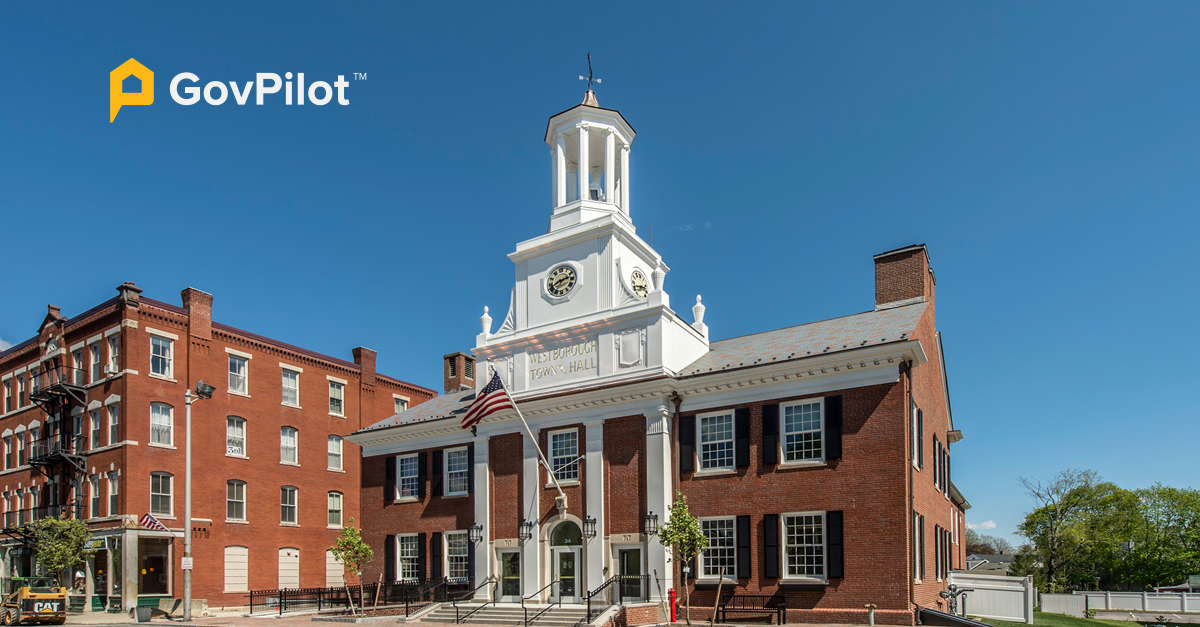This past election cycle showcased a truly divided America, with hyper partisanship and Americans' trust in the Federal government at all time lows.
Local governments are not unaffected as they are the level of government Americans have contact with most often. As the percentage of Americans with disdain for the federal government continues to go up, many are skeptical of local public institutions too.
As a result, of this growing lack of trust, public officials will need to consider ways to build trust with their constituents if they seek re-election by improving Americans' lives. After all, local government is at the community level and is the form of government that all Americans have the most day-to-day interaction with. But how can local governments build on and continue to earn Americans' trust? Learn more about the actions local governments and government agencies should take to build a high level of trust with constituents by demonstrating competence, improving service delivery and genuinely increasing constituents' quality of life.
What Does It Take for Constituents to Trust Their Government?
Generally, Americans want to trust that their government institutions are looking out for their best interest. At the local level, they want policies that directly improve their quality of life, and want to see their community flourish with economic growth, high-quality infrastructure, and services.
Here are some ways you can make a positive impact on your constituents to build trust (that will appeal to both democrats and republicans):
-
Have Well-Coordinated Municipal Planning
During COVID-19 many communities adapted by shutting down streets for food vendors and businesses to provide a lifeline to local business and a lifeline to citizens cooped up inside. Many Americans have grown accustomed to outdoor dining and spending time in local parks and public areas. Make sure your municipal planning considers ways to keep business owners and constituents happy and the economy booming by incorporating more outdoor space and special economic districts.
As natural disasters continuously ravage communities nationwide, public infrastructure should be disaster resilient to withstand wildfire damage, flood damage, or other natural disaster types. Encouraging constituents to take similar action at the personal level will build trust as they take action to protect their homes and businesses from being destroyed. This will also instill confidence that local public administrators are well versed in, and prepared for disasters, which are increasing across the country.
-
High-Performing Government Processes
With the world becoming increasingly more digitized, attention spans are low and demand for convenience is high. As a result, things like filing government paperwork or applications should be as simple and straight-forward as possible. Consider giving constituents the option to file licenses and permits online, so that they can file 24/7 and from the comfort of their own homes. The private sector has provided online, e-commerce options to consumers for years. It is now time for the public sector to deploy the convenience and capabilities of digital services.
-
Support Public Service Opportunities
Enable constituents to become active participants in their community. Research suggests that volunteers aren’t just helping the communities they serve. People who volunteer actually experience a boost in their mental health — good news at a time when more than a third of Americans report feeling symptoms of anxiety or depression. A government that provides and promotes volunteer opportunities will help foster a happier, more tolerant and cohesive community. Provide resources for people to get involved in local initiatives and increase trust by promoting civic engagement.
-
Provide Outlets of Communication with Your Constituents
Your local government should have ways to notify constituents of an emergency and community members should have an easy way to contact the government or file a complaint. For full transparency, make sure there are means for communication that go both ways.
How Can You Improve on All of These Processes?
Now that you have an idea of what constituents prioritize when it comes to trusting their governments, it’s time to figure out how to implement such positive changes in public institutions.
In most cases, making a digital transformation can improve almost all of your day-to-day government processes and will surely leave your community members impressed.
Here are some of the top ways to use modern technology to increase trust in your municipality:
-
Use Complaint Management Software
Give constituents the opportunity to file a complaint anytime an issue arises. Complaint management software will allow people to report problems directly from their phone or computer, be it an emergency that needs to be reported to the municipality or just an issue that a constituent wants to address like a code violation in their neighborhood.
-
Leverage GIS Mapping
GIS mapping will allow your government to update constituents about any issues that arise. Real-time map updates meant that you can let people know about something as minor as a pothole to something as serious as a flood zone or road closure. This real-time communication will build social trust within your community.
Learn more in our guide on Ways Local Governments Can Use GIS Mapping.
-
Automate Government Services
Making the switch to government management software will mean that staff across departments will automatically be able to access relevant documentation from anywhere, meaning processes like approving permit applications can get done much more quickly and transparently.
Online platforms for important government tasks like mobile building inspection software can save time and energy too. Inspectors can use a tablet or phone to record notes during a building inspection, with inspectors noting it takes no longer than 30 minutes to inspect a building.
-
Use Online Recruiting Platforms
In order to reach your goals of increasing political trust, you’ll need to make sure that your recruiting processes are top notch so. Fill in gaps that can’t be replaced with automated software by recruiting online, and entice new employees by showcasing your digital infrastructure.
-
Offer Virtual Court Hearing and Events
With the rise in Zoom calls during the height of the pandemic, people have grown accustomed to not needing to attend events in person. Build trust with your community by offering convenient virtual events for things like court hearings or a live online real estate auction that can generate significant funds for your budget.
-
Collect Meaningful Data
Implementing a digital infrastructure strategy will allow you to collect meaningful, actionable municipal and county data directly from your constituents. As people do things like file-complaints, apply for a construction permit, or register their new business you’ll learn more about what your community members like and don’t like, and how the economy is performing. Trust levels will rise naturally if your decision-making is data-backed.
In Conclusion
Overall, the pressure local governments are feeling to improve public trust may end up being beneficial in the long run. Governments have an obligation to keep their community members happy and their quality of life as high as possible. By investing in improvements to internal government processes and citizen services, keeping communication lines open with the community, and providing great public infrastructure, local governments can drastically improve reliability and trust in a way that is noticed and felt by constituents every day. In turn this generates a high quality of life, a booming local economy, and desirability as a place to live and work.
To learn more about how digital infrastructure and modern government management software can improve your governments’ services and operations, book a free consultation.
Trust in Government FAQs
Why Don’t People Trust the Government?
According to the 2021 Edelman Trust Barometer, Business are more trusted than government in 18 of 27 countries including the United States.
With gridlock in Washington, high federal (and sometimes state) taxes, the spread of misinformation and disinformation via social media during the coronavirus pandemic, fights over regulations and reform, weakening infrastructure, and complete political division within the United States, there is a growing number of Americans that are not happy with their current political system. While there is undoubtedly more resentment towards federal and state government, this political discourse should be seen as motivation to improve government performance at the local level too.
How Can Local Governments Build Trust?
Improving the day to day lives of people in your neighborhood is the wisest way to build trust with constituents and to improve social cohesion. Leveraging funds for the American Rescue Plan and Infrastructure Bill to improve your community’s physical and digital infrastructure, encouraging community members to volunteer and get involved, and building better means of communication with your community are some of the most effective ways to build trust.
How Can Government Software Help With Improving Trust?
Modern technology will be helpful in improving almost all facets of your municipal government. As you improve your infrastructure and communication methodologies, government management software can automate most of the work, saving government workers time and money to use elsewhere.
With the data you'll collect, you can build interpersonal trust with fellow citizens in your community by making educated decisions based on what the data tells you the community wants.










